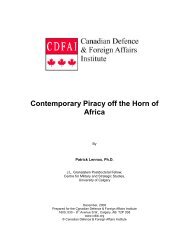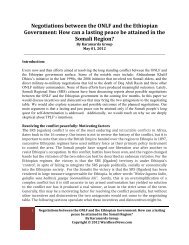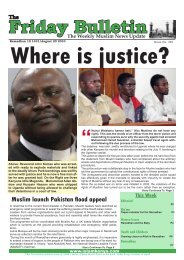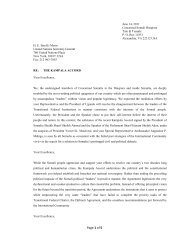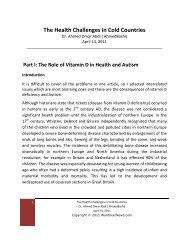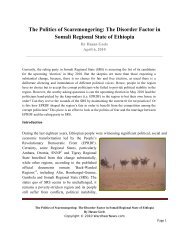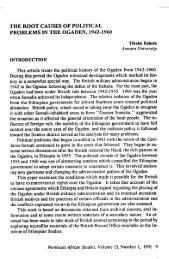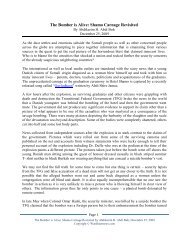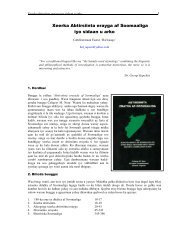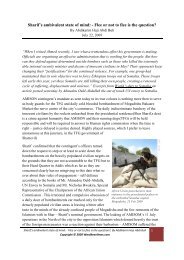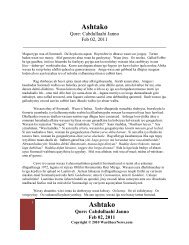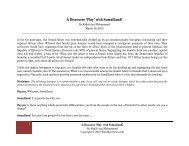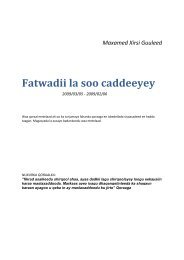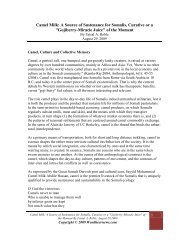View - WardheerNews
View - WardheerNews
View - WardheerNews
You also want an ePaper? Increase the reach of your titles
YUMPU automatically turns print PDFs into web optimized ePapers that Google loves.
of the ruling party for appointments in the lower echelon bureaucracy. Tacit support of the<br />
EPRDF is necessary to assign senior government officials and cabinet members.<br />
Members of the ruling Somali-Ethiopian political party and the various kinship-based<br />
factions within it are best understood as ‘consortiums of competitive identity groups’<br />
(Matthies 1977:261). These consortiums amalgamate kinship, ideological, and material<br />
interests and thus neither correspond to a political party, a strictly parochial interest group,<br />
or a political entrepreneur, although they share characteristics of these three. Different<br />
orientations within party politics are not only determined by kinship loyalty. Important<br />
divisions across the clan divide exist among the ‘realists’ who reject the idea of an<br />
independent Ogaden State, the ‘nationalists’ who pursue the goal of liberation, and the<br />
‘moderates’ who would settle for an autonomous status within a decentralized Ethiopian<br />
state (Brons et al. 1995:47). Political struggle is indeed mostly enacted along the contours<br />
of genealogical identity in the Somali Region. This said, the existence of segmented<br />
patrilineal kinship per se does not lead to instability of state institutions. Rather it is the<br />
politicisation of kinship through the expansion of the state and associated public resources<br />
that motivate institutional instability. Religion plays a minor role in competition between<br />
Somali-Ethiopian consortiums. Islam primarily assumes importance as an identity marker<br />
manifest in the general confrontation between Somali lowlanders and Ethiopian<br />
highlanders.<br />
Institutional instability<br />
After the massive exodus of Somalis from the region following the 1977 Ethio-Somali war,<br />
few educated people were left behind when the EPRDF established the regional<br />
government (Hogg 1996:162). Consequently, higher positions of the Somali Region were<br />
initially taken by politicians and senior bureaucrats formerly active in Somalia’s Syaad<br />
Barre regime. These politicians and high officials were systematically removed from office<br />
between 2002-2004 on grounds of having previously served a foreign government. They<br />
were replaced with persons judged to be loyal to the EPRDF. Despite this change of senior<br />
personnel, the principle of periodic rotations within the government workforce did not alter<br />
significantly. The position of regional politicians and senior bureaucrats (especially the<br />
bureau heads) is a particularly difficult one, as they are subjected to numerous pressures.<br />
Officials have to appear legitimate in the eyes of their own kinship constituency, i.e. they<br />
have to succeed in furthering clan interests and provide a material ‘dividend’ to relatives<br />
11



